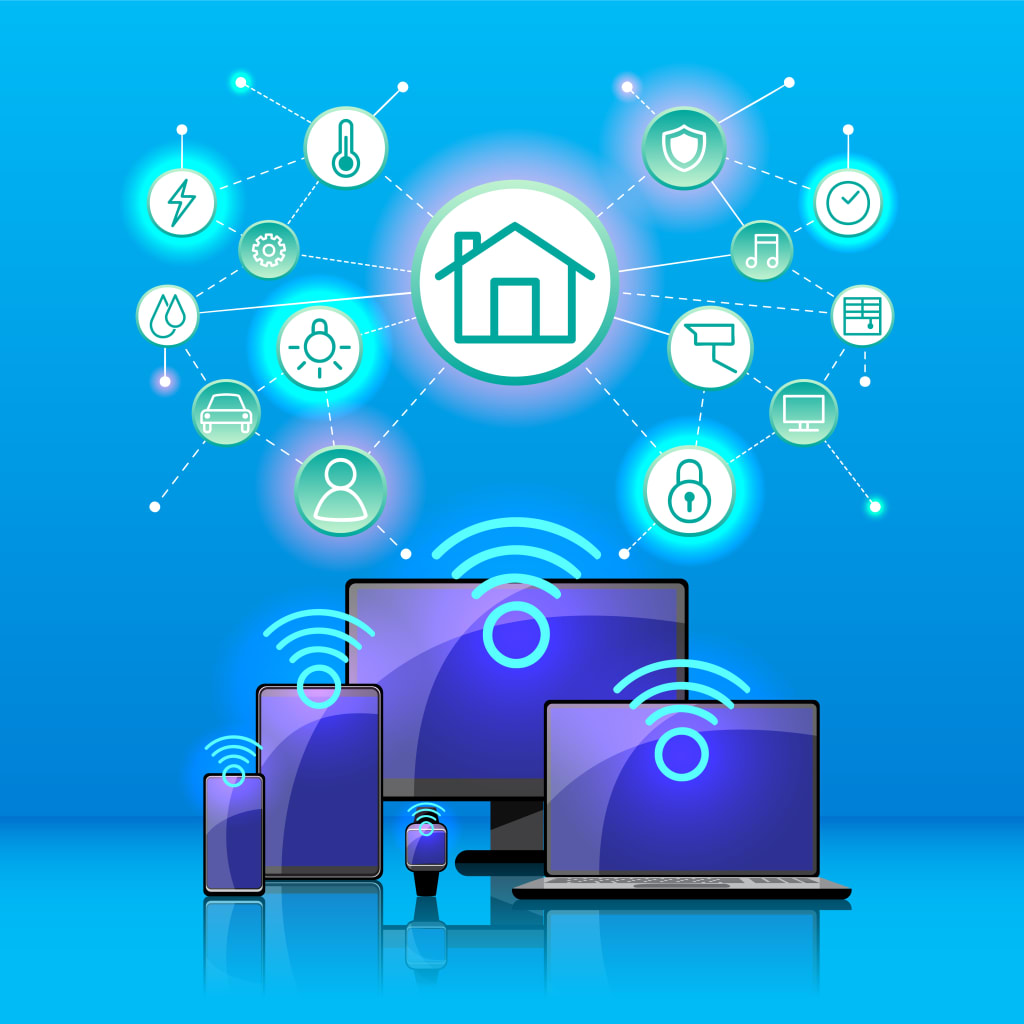Smart Homes: Exploring the Benefits of IoT-Enabled Homes
IoT-Enabled Homes

In today's technologically advanced world, smart homes have become a reality, thanks to the rapid growth of the Internet of Things (IoT). This article delves into the fascinating realm of smart homes and uncovers the numerous benefits they offer. From enhanced convenience to improved security and energy efficiency, IoT-enabled homes are transforming the way we live. So, let's embark on this journey and explore the remarkable advantages of smart homes.
Introduction
As technology continues to advance, our homes are becoming more intelligent and interconnected. Smart homes leverage the power of the Internet of Things (IoT) to create a seamlessly automated and connected living environment. By integrating various devices and systems, smart homes enable homeowners to control and monitor different aspects of their homes using a central hub or mobile applications. This level of automation and connectivity brings forth numerous benefits that enhance our daily lives.
What is a Smart Home?
A smart home is a residential space equipped with interconnected devices and systems that can be controlled and automated remotely. These devices are connected to a central hub or a smart home ecosystem that allows homeowners to monitor and control them through their smartphones, tablets, or voice assistants. From lighting and thermostats to security cameras and appliances, smart homes offer a wide range of automation possibilities.
IoT and Smart Homes
The Internet of Things (IoT) is a network of interconnected devices embedded with sensors, software, and connectivity capabilities that enable them to collect and exchange data. Smart homes are an integral part of the IoT ecosystem, as they consist of various IoT-enabled devices and systems that communicate with each other. These devices generate data and use it to make intelligent decisions, providing homeowners with seamless control over their living spaces.
Benefits of Smart Homes
1. Enhanced Convenience
One of the primary benefits of smart homes is the unparalleled convenience they offer. With smart devices and automation systems in place, homeowners can control and monitor their homes remotely. Whether it's adjusting the temperature, turning off lights, or even starting the coffee maker from bed, smart homes simplify daily tasks and make life more convenient.
2. Energy Efficiency
Smart homes contribute to a greener future by promoting energy efficiency. IoT-enabled devices such as smart thermostats, lighting systems, and appliances can optimize energy usage based on occupancy, time of day, and personal preferences. This leads to significant energy savings, reducing both environmental impact and utility bills.
3. Improved Security
Security is a top priority for homeowners, and smart homes provide advanced security features. IoT-enabled security cameras, door locks, and motion sensors allow homeowners to monitor their property remotely and receive real-time notifications about any potential threats. Additionally, smart security systems can integrate with other devices to simulate occupancy, enhancing home security while residents are away.
4. Remote Monitoring and Control
Smart homes offer the convenience of remote monitoring and control. By accessing the smart home ecosystem through mobile applications, homeowners can check the status of their devices and make adjustments from anywhere.
5. Integration and Automation
One of the remarkable aspects of smart homes is the seamless integration and automation capabilities they provide. Different IoT-enabled devices and systems can be interconnected to work together harmoniously. For example, when you arrive home, your smart home system can automatically turn on the lights, adjust the thermostat to your preferred temperature, and even play your favorite music, creating a personalized and welcoming environment.
6. Health and Wellness
Smart homes also have the potential to improve our health and well-being. IoT-enabled devices can track vital health metrics, such as heart rate, sleep patterns, and physical activity. This data can be analyzed to provide insights and recommendations for a healthier lifestyle. Additionally, smart homes can integrate with medical alert systems, enabling prompt emergency response in case of accidents or health emergencies.
Challenges and Considerations
While the benefits of smart homes are enticing, it is essential to consider the challenges and potential drawbacks associated with this technology.
1. Privacy and Security Concerns
As smart homes gather and process vast amounts of data, privacy and security become major concerns. Homeowners must ensure that their smart home devices and systems are adequately protected against cyber threats. It is crucial to choose reputable brands, update firmware regularly, and implement robust security measures to safeguard personal information and maintain privacy.
2. Cost and Accessibility
The initial cost of setting up a smart home can be a barrier for some homeowners. IoT-enabled devices and systems may have higher upfront costs compared to traditional counterparts. However, it's important to consider the long-term cost savings and benefits that smart homes offer. As technology advances, the affordability and accessibility of smart home solutions are improving, making them more attainable for a wider range of individuals.
3. Compatibility and Interoperability
Another challenge in the realm of smart homes is the issue of compatibility and interoperability. With numerous brands and manufacturers offering IoT devices, ensuring seamless integration and communication between different devices can be complex. Homeowners must choose devices that are compatible with their existing smart home ecosystem or invest in a centralized hub that supports multiple devices.
Conclusion
In conclusion, smart homes powered by IoT technology have revolutionized the way we live and interact with our living spaces. The benefits of enhanced convenience, energy efficiency, improved security, remote monitoring and control, integration and automation, and health and wellness make smart homes an attractive choice for homeowners. However, it is important to address challenges such as privacy and security concerns, cost and accessibility, and compatibility and interoperability. As technology continues to evolve, smart homes will become even more advanced, offering greater comfort, efficiency, and peace of mind.
About the Creator
Rehana Atar
SEO Expert and content writer
Enjoyed the story? Support the Creator.
Subscribe for free to receive all their stories in your feed. You could also pledge your support or give them a one-off tip, letting them know you appreciate their work.






Comments
There are no comments for this story
Be the first to respond and start the conversation.